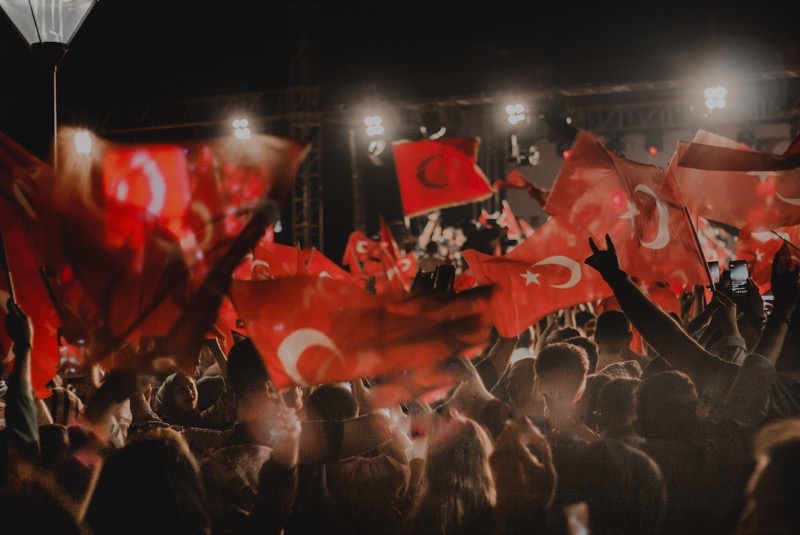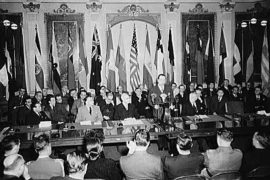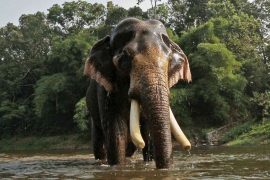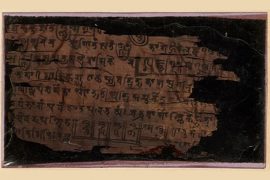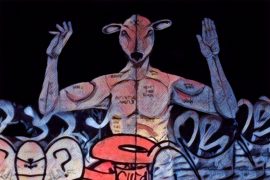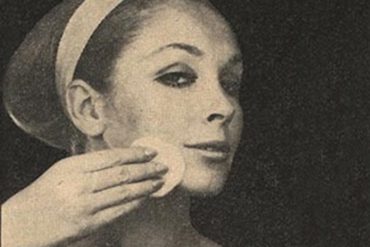Tens of millions of Turkish voters went to the polls last weekend. The incumbent President, Recep Tayyib Erdogan, faced a stiff competition from the leading opposition candidate, Kemal Kilicdaroglu.
Before the elections, most polls predicted Kemal Kilicdaroglu would win the election, albeit with a narrow majority. However, the results are not conclusive, and the country will go to a runoff election on 28 May.
A new constitution voted in 2017 stipulates that the parliament and presidential elections must be held at the same time. To win the presidential election, a candidate must garner more than fifty per cent of the votes. If no candidate receives more than fifty per cent of the votes, runoff election ensues between the two candidates with the highest votes.
The Fight Between Erdogan & The Opposition
There are two main blocks: People’s Alliance and the Nation Alliance.
Nation Alliance, the main opposition, is made up of six political parties. It is spearheaded by the Kilicdaroglu-led Republican People’s Party (CHP) party. CHP, known for its pro-secularist policies. However, the CHP has been fiercely opposed by conservative Turkish voters.
To bring the conservative voters into their fold, Kilicdaroglu promised a reconciliation policy that would unite the country and to heal the wounds of the past. More importantly, the Nation Alliance made a pact with the conservative leaning Good Party (IP) and three minor religious parties – the conservative Happiness Party (SP), Future Party (GP) and Solution Party (DEVA).
It is important to note that the Future Party (GP) led by Ahmet Davutoglu, a former prime minister and Erdogan’s former foreign minister, and the Solution Party (DEVA) led by Ali Babacan, who served as the minister of economy until 2019 under successive Erdogan governments, have formed an alliance with Kilicdaroglu.
Critics argued that the Nation Alliance, fragmented and divided by contesting ideologies and interests, would not be able to form a concerted front against Erdogan. However, the Nation Alliance successfully overcame this hurdle.
Another issue was the question of leadership. Who would be the collective candidate of the Nation Alliance?
Kilicdaroglu did not have a proven track record of public office. However, Turkish voters tend to prefer politicians with proven public office track record. Furthermore, the polls consistently showed Erkem Imamoglu, the Mayor of Istanbul and Mansur Yavas, the mayor of Ankara, to be ahead of Kilicdaroglu.
However, Imamoglu is facing a possible prison sentence and could be banned from politics for three years for ‘insulting the Electoral Council (YSK).’ Consequently, he was out of the race; many argue that the decision to sentence Imamoglu was politically motivated.
In yet another setback for the Nation Alliance, Muharram Ince, who lost to Erdogan as the CHP’s nominee in 2018 election, nominated himself for the presidential election. Ince had faced criticism for ‘potentially ciphering support from the six-party Nation Alliance, which has united behind the candidacy of opposition leader Kemal Kilicdaroglu,’ and thereby putting Erdogan in an advantageous position.
But in a dramatic turn of events, images of Muharram Ince having an extra-marital affair were circulated on the internet. Consequently, he withdrew from the race two days before the election. The Nation Alliance members welcomed Ince’s decision to step down, expressing hope for a first-round victory. Kilicdaroglu called on Ince to join the opposition coalition, tweeting:
Let’s leave old resentments, old grievances behind.”
It’s The Economy, Stupid
Kilicdaroglu, criticised Erdogan’s party, the ruling Justice and Development Party (AKP),’ for failing to achieve the 2023 goals and objectives. The AKP promised to make Turkey one of the top 10 economies in the world. But far from being in the top ten economies, Turkey’s economy nosedived in the past three years; the Turkish lira has plummeted in value and inflation has reached a record high of 82.5 per cent. Turkish people are facing an economic crisis.
Kilicdaroglu also criticised Erdogan for corruption, nepotism and wasteful government spending, which found resonance among many sections of Turkey. Furthermore, the mismanagement of February 2023 earthquake, was also a key factor in people’s resentment with the Erdogan government.
Given widespread resentment with Erdogan, Kilictaroglu tried to present a new vision for the electorate. He announced a four-step reform program that would make Turkey a democratic, productive, social state with investment in agriculture, industry and services.
Erdogan’s Electoral Strategy: Media Control & Religious Polarisation & Ultra-Nationalism
Controlling the Turkish media remains Erdogan’s key strategy. Turkey has one of the highest rates of detained and jailed journalists in the world – in fact, it is second only to China.
Moreover, the reach of Turkish public sector broadcasting is controlled by the ruling establishment. Consequently, during April, Erdogan received more than 33 hours of airtime on the state-run TRT channel. In contrast, Kilicdaroglu had just 32 minutes.
Kilicdaroglu’s message did not reach voters in small towns and rural areas because they rely on conventional media of TV and newspapers, heavily controlled by Erdogan. Ergo, Erdogan gained electorally in rural areas and smaller cities where as Kilicdaroglu won the majority vote in major cities such as Istanbul, Ankara and Izmir.
Erdogan was the natural candidate for the Justice and Development Party (AKP)-led People’s Alliance. Since 2015, the ultra nationalist MHP (Nationalist Movement Party) has been supporting the AKP government. The alliance also included several minor religious and nationalist parties.
The ruling block had three main arguments against the opposition. First was the secular history of CHP, established by Turkey’s founder Mustafa Kemal Ataturk and now led by Kilicdaroglu. In the 1990’s, CHP was the leading defender of the headscarf (hijab) ban for women.
Erdogan argued that if Kilicdaroglu became president, religious Muslims in Turkey would lose their freedoms gained in the past two decades under his rule.
Erdogan also used Kilicdaroglu’s Alevi religious identity against him. Alevism is a branch of Shi’a Islam followed by about five to ten per cent of Turks within a largely Sunni nation. The Erdogan camp tried to push the Sunni majority away from Kilicdaroglu’s Alevi orientation.
Erdogan also accused Kilicdaroglu of colluding with the Peoples’ Democratic Party (HDP), a pro-Kurdish legal political party which he alleges to be the the ‘political arm’ of the Kurdish Workers’ Party (PKK), a terrorist organisation as recognised by Turkey and its Western allies. This accusation has been a major part of the security discourse utilised by Erdogan to attract nationalist votes and was rejected by Kılıcdaroglu.
Clearly, the fear mongering strategy against Kilicdaroglu worked, and Erdogan will go to the runoff election ahead of his rival.
What next?
If Erdogan manages to get fifty plus per cent, he gets political legitimacy to carry on as the incumbent president. Yet, he lost some legitimacy by receiving less than fifty per cent of the votes last weekend.
The Turkish media will play a key role in the next two weeks. If they are critical of Erdogan and support Kilicdaroglu, they fear a post-election crackdown if Erdogan wins. However, the Turkish media would also not want to be seen as too supportive of the Erdogan government in case Kilicdaroglu wins the election.
Erdogan, like he has done in the past, will likely put excessive pressure on the media – and that may be sufficient to tip the election in his favour.
Kilicdaroglu will have a chance to face Erdogan, with no other opposition candidate, in an electoral duel. He can still pull off a narrow win if he is able to appeal to people who did not vote for Erdogan.
His biggest bet will be to call upon all voters to turn up and vote if they do not want another five year’s of Erdogan misrule and economic hardship.
-30-
Copyright©Madras Courier, All Rights Reserved. You may share using our article tools. Please don't cut articles from madrascourier.com and redistribute by email, post to the web, mobile phone or social media.Please send in your feed back and comments to [email protected]

